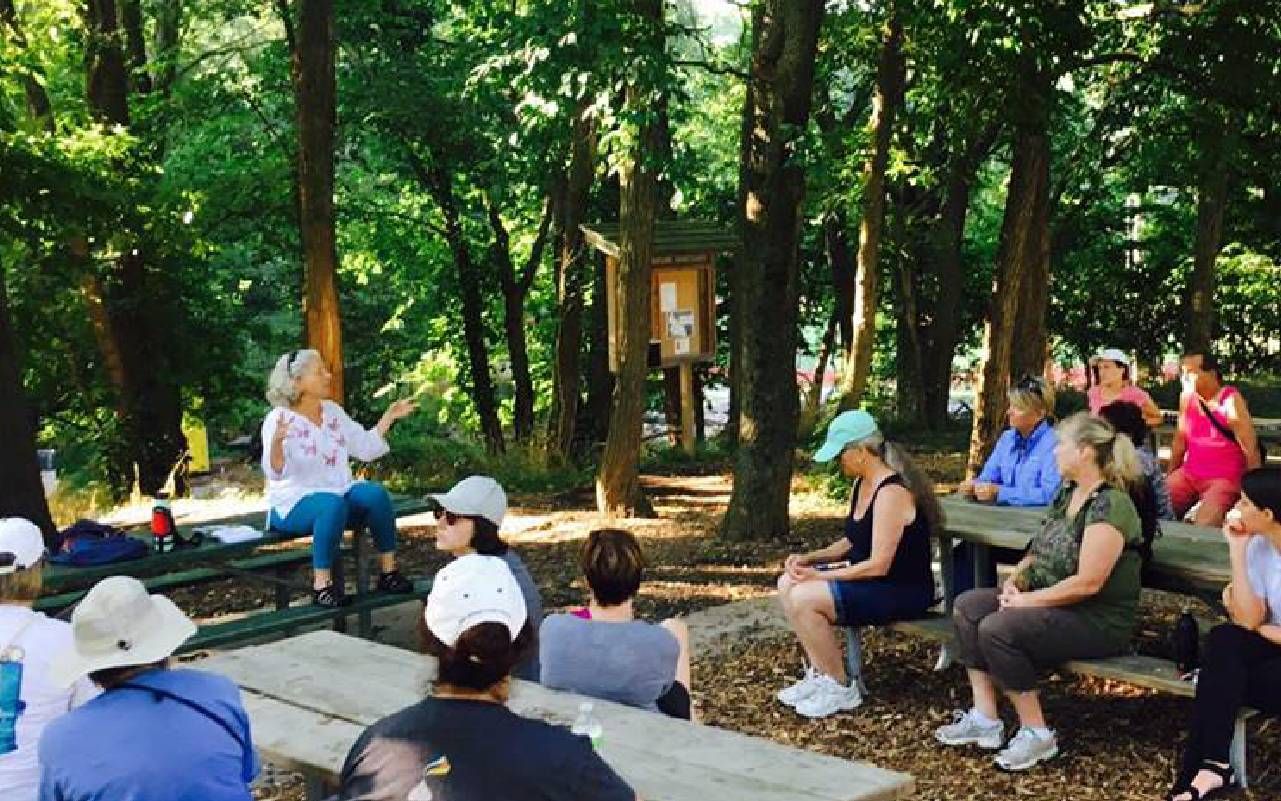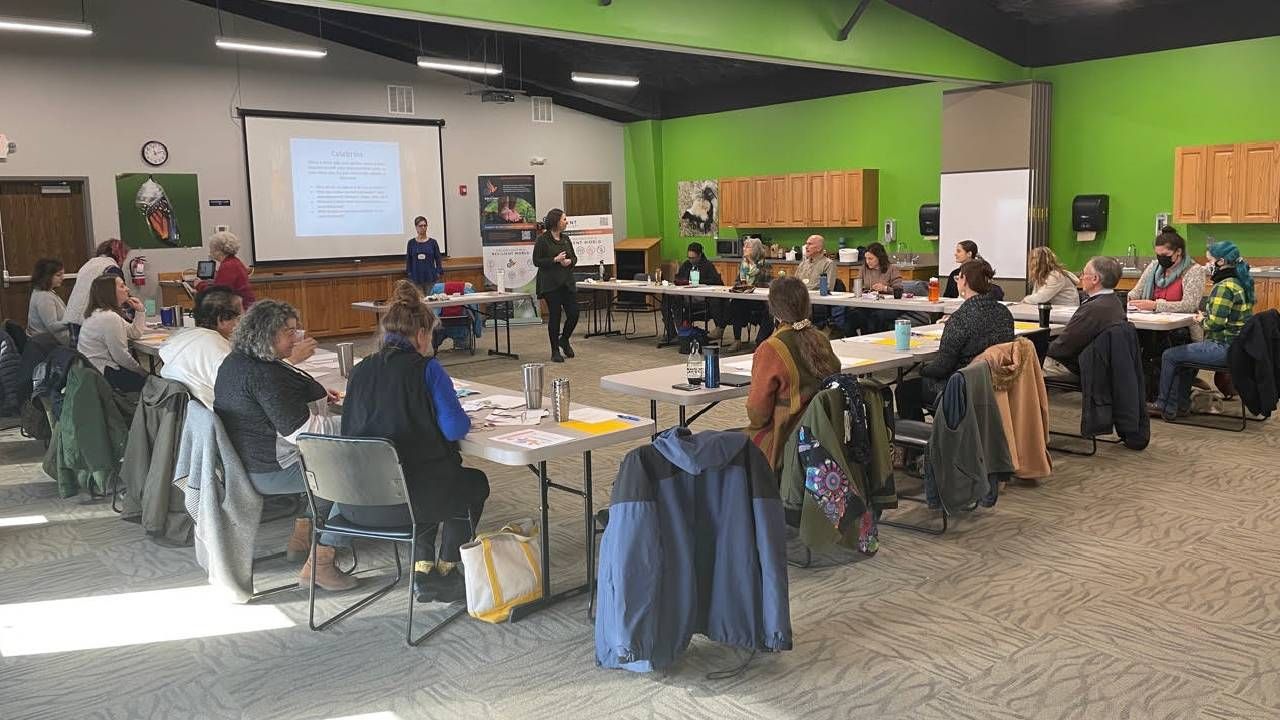Stay Resilient and Carry On
Nonprofit The Resilient Activist teaches climate-change activists how to be resilient and persist in their efforts to save the planet
Earlier this year, working a booth at the Birds, Bees and Blooms Festival in Arrow Rock, Missouri, I noticed that one booth in particular was often busy — not with festivalgoers, but with festival volunteers. When I had my break, I went over to the table and introduced myself to the woman who stood with an open smile and friendly greeting.

Sami Aaron, founder of The Resilient Activist (TRA) nonprofit based in Kansas City, Missouri, wasn't giving away wildflower seeds or explaining the devastating loss of grassland birds. Instead, she was offering information on how conservation and climate change activists can find resiliency in the face of looming odds.
"We must have the tools to sustain our own well-being," Aaron told me.
Climate Activists' Trauma
The tools Aaron shares with others are those she learned through the grieving process. In 2003, her son, who was studying environmental policy, died by suicide due to the futility he saw in the face of our planet's systemic degradation. At the time, little was understood about the mental and emotional trauma suffered by many activists. Today, however, the effects are becoming more widely recognized.
"I did not recognize what was happening with my son. And I wanted to be able to help others who might be in the same situation."
A 2017 report by the American Psychological Association described two ways people suffer from climate change-related stress. One is the direct emotional and psychological stress of people immediately affected by a climate disaster, such as losing a home to wildfire or flood. But climate change also can have indirect, less-obvious effects on mental health through feelings of fear, anxiety, hopelessness and helplessness.
People may fear for the future, not only for themselves but also for their children and grandchildren. Others may experience guilt for not getting involved in solutions earlier; while those who have been activists for decades may experience frustration or anger when younger generations criticize them for not getting more done sooner.
(Ironically, those younger generations are facing their own anxiety at not making progress in the fight against climate change.)
Multigenerational Anxiety
Finally, there is a condition known as solastalgia, the deep sadness of watching a special wild place disappear.
"I did not recognize what was happening with my son," Aaron said. "And I wanted to be able to help others who might be in the same situation."
With this intention, after she retired in 2017, Aaron began a nonprofit to support climate-change activists. By then she had become a Master Naturalist — a volunteer who has graduated from a program that teaches about ecological systems present in the natural world.
She also understood how far societies had evolved away from those systems. The more she understood, the more she knew her program needed to be based in a "deep connection" to nature.
"But I knew we couldn't just send activists out to spend time in nature, because most of them would just see what was wrong, whether it was through pollution or habitat loss," Aaron said. "That wasn't going to help."
She knew her program also needed to provide naturalists with the tools required to be resilient in the world as it is — both the beauty and the pain. She looked to the activities that had sustained her own healing: meditation, yoga, mindfulness and realistic action.
Skepticism, Initially
When she began the organization, she said long-time activists wanted nothing to do with it.
"The last thing they wanted to do after spending their days confronting these issues was to come home at night and examine their feelings," Aaron said. "They just wanted to watch television or relax."
Biding her time, she continued working with health care professionals to design the training now offered by TRA.

"When they are ready," she said of the emotionally stressed activists she was trying to help, "we will be here."
Today, with increased awareness of both the state of the climate and the anxiety suffered by those working in the field, TRA is making its mark. According to their 2022 Mindfulness and Resilience pilot training report, 23 participants attended the online, 9-week course — the mean age being 55.
Stress-Fighting Tools
Comparing pre- and post-test scores showed that the training improved volunteers' ability to cope with stress by using mechanisms they were taught. Some of these included setting achievable goals, planning ahead for difficult situations and understanding the necessity of acceptance and realistic optimism.
"When they are ready, we will be here."
"The Resilient Activist fills a completely unique and desperately needed niche in the world of ecological conservation," wrote Dana Ripper, co-founder of the Missouri River Bird Observatory and a resiliency-training participant.
"While we've had some 'wins,' she wrote, "mostly [activists] have just tried to stem overwhelming ecosystem degradation, species loss and polluted natural resources — consequences of a system that prizes profit above all else."
"Challenging the system can be daunting and poses a serious risk of burnout in even the most dedicated people," she added. "The Resilient Activist provides support for maintaining mental and emotional health so that we can continue our work."
So what does that support look like? In some ways, it's not what you would expect.
"One of the things we teach is letting go. No one is going to fix it all. But we can choose one or two things we can work on or accomplish."
"I don't sugarcoat anything," Aaron said. "One of the things we teach is letting go. No one is going to fix it all. But we can choose one or two things we can work on or accomplish."
That is what allows for resilience.
She and her colleagues also address moral injury, which results from the strict standards to which we hold ourselves and others. An article in the March 2023 issue of the British medical journal The Lancet, says moral injury is shame and guilt associated with consuming daily necessities, "knowing that the production and waste of these products contributes to climate destruction."
A Shoestring Operation
Many of The Resilient Activist's online resources are free, including videos of guided meditation and research on the effect of climate-related emotional stress. It also has a speakers' bureau and a program called Business for Good that is geared toward inspiring companies to become more aware of the environmental impact of their practices.
With much of its work on offer for free, Aaron often doubts TRA's own sustainability. But she knows climate-change activists need support.
"If [people] think we are doomed and act like it, then we are," she said, knowing that people who burn out or feel overwhelmed sometimes give up entirely. "But if each individual is resilient and active, whether it is in creating a pollinator garden or whatever they are comfortable doing, that leads to a tipping point."
It's this tipping point — a groundswell of individual, sustained action — that will allow real change to come.


